For over three decades, Vegtech Netafim has been involved in African horticulture through high-tech greenhouse solutions tailored to local demands. Based in Cape Town, the company has developed from a supplier of greenhouse products to a comprehensive provider of turnkey projects, being active in the development of controlled-environment agriculture (CEA) across South Africa, the Southern African Development Community (SADC) region, and the rest of Africa.
"Originally, we were primarily in the greenhouse products business," says Neta Isralls, Engineering Manager. "Today, we offer end-to-end solutions, handling everything from design and engineering to installation and technical support, which has been instrumental in adapting global greenhouse technology to local conditions."
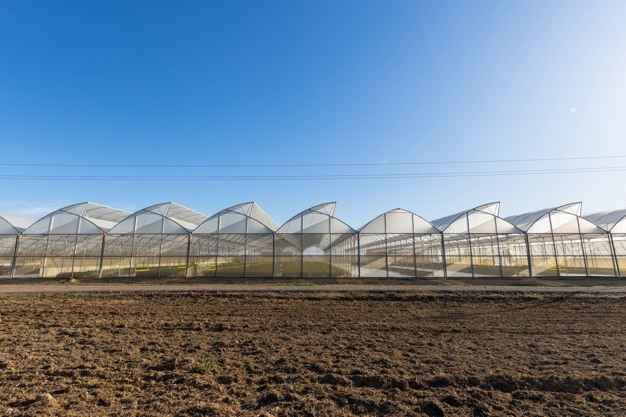
Eurafruit project, South Africa
Partnership with Netafim: expertise and reach
Vegtech Netafim's partnership with Netafim, specializing in irrigation globally, marked a turning point around 20 years ago. "We can now focus solely on greenhouses in Africa, whereas most other Netafim business units are more focused on open-field irrigation," Neta explains. The scope of their projects is broad, ranging from vegetables, berries, and flowers, to aquaculture systems. "We cover multiple segments like tomato and cucumber growers, but nurseries have emerged as a significant niche," Neta says. "There's been a boom in demand for high-quality starter material for crops like avocados, citrus, and macadamias." Such projects require strict environmental controls and customized approaches from the company, as high-value crop nurseries face particular pressure to ensure quality consistency and disease control.
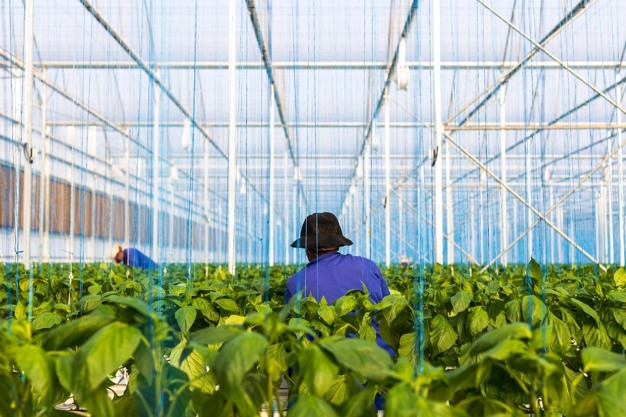
Custom engineering
Vegtech Netafim's team, made up of 45 professionals with specialties in automation, climate control, water systems, electrical systems, and structural design, plays an important role in the company's greenhouse solutions for its clients. "Each greenhouse project is highly customized," Neta says. "The requirements for a small-scale berry farmer can differ dramatically from those for a large-scale tomato producer, in terms of budget, technology level, and even crop sensitivity."
The company's ability to locally manufacture greenhouse components in South Africa, or import them from China ensures flexibility, quick turnaround, and cost efficiency. "Our hybrid manufacturing approach allows us to combine international standards with local adaptability, especially critical in a market where climate and budget vary drastically from project to project," says Neta. This also allows Vegtech to quickly address logistical challenges, such as material shortages, import restrictions, or fluctuating costs.
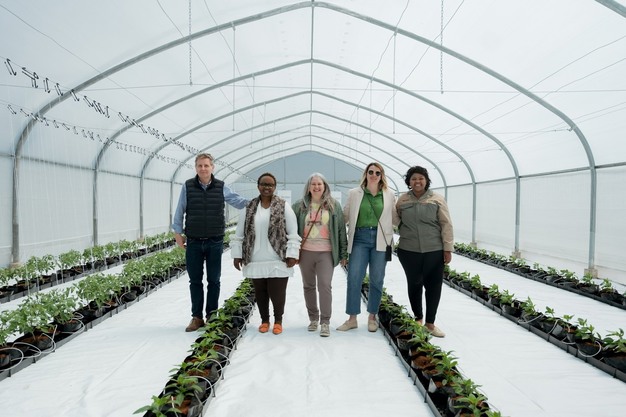
Greenhouse construction as "team building"
Technology and innovation
Vegtech Netafim collaborates with partners like Priva, Munters, Alweco, and Arrigoni. "These collaborations enable us to implement advanced climate control, shading, and ventilation technologies, which are important for optimizing yields in diverse climates," explains Barney Isralls, Managing Director. Priva's climate automation systems will allow their growers to precisely control temperature, humidity, and CO₂ levels, where Munters' air treatment solutions for example help manage cooling and dehumidification, important in regions where temperature fluctuations are frequent. "We're constantly working on ways to enhance efficiency and productivity, especially under the challenging conditions our clients face," Barney says.
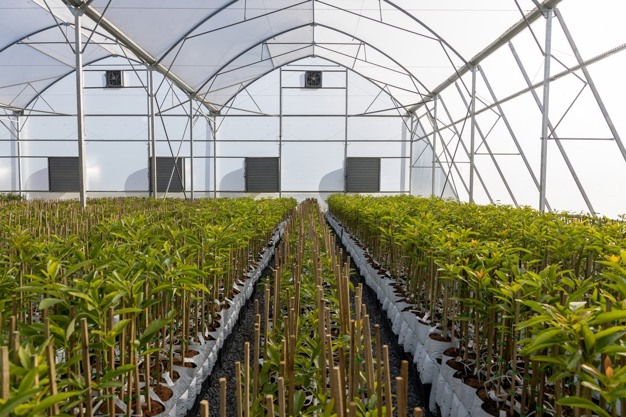
Eurafruit project, South Africa
Social responsibility and knowledge transfer
As part of the company's corporate social responsibility, the company recently constructed and donated a high-tech tunnel for the Living Soils Community Learning Farm in Stellenbosch, a nonprofit organization that cultivates fresh produce for local communities while promoting sustainable farming practices. "We donated the structure and involved our entire team in the construction process," says Neta. "It was a fantastic opportunity for our office staff to get hands-on experience with one of our greenhouse systems."
Living Soils uses the facility for mixed-crop production, including tomatoes and peppers, but also as a teaching facility to shape and experiment with new food ventures in the South African context. Vegtech Netafim also provides agronomic support to ensure the success of this initiative.
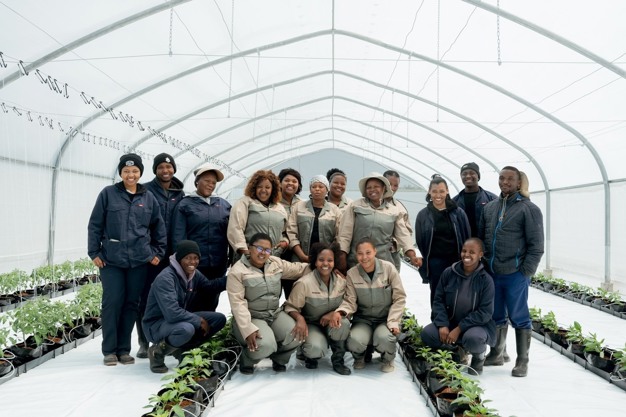
Greenhouse opening at Living Soils Community Learning Farm
African projects and demonstration farms
One of the company's current initiatives is a demonstration farm in Guinea, comprising three hectares of greenhouses, tunnels, and nethouses, as well as open-field banana cultivation, and a tilapia fish farm. The closed-loop design utilizes nutrient-rich water from the fish farm for irrigating open-field crops.
Closer to home, Vegtech Netafim is developing advanced greenhouse infrastructure for Sappi, a major forestry company, and Emseni, one of South Africa's largest sweet pepper growers. "For Emseni, we're now in the eighth phase, adding another three hectares to their current 11-hectare facility," Neta notes. The project includes automated climate control systems and high-efficiency irrigation. They also have longstanding relationships with growers like Eurafruit in South Africa, for who they recently developed a new three-hectare high-tech blueberry and avocado nursery near Wellington in the Western Cape.
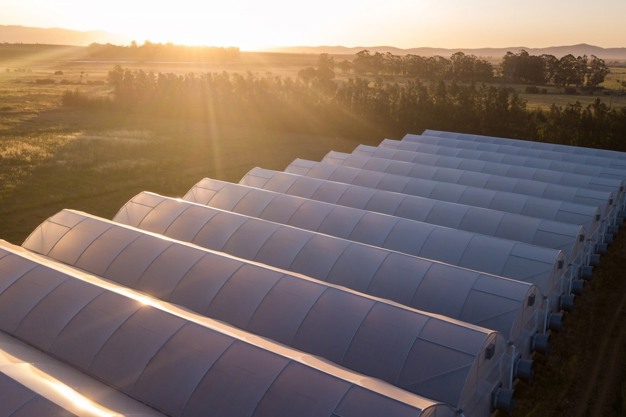
Eurafruit project, South Africa
Challenges remain in adapting high-tech agriculture to the realities of African markets. "The cost of infrastructure and the need for technical expertise are significant hurdles for many of our clients," says Neta. However, the company's localized manufacturing, training programs, and ongoing technical support, help to bridge these gaps. "Our mission is to empower African growers with the tools and expertise they need to succeed," says Barney.
For more information:
Vegtech Netafim
[email protected]
www.vegtechnetafim.com
